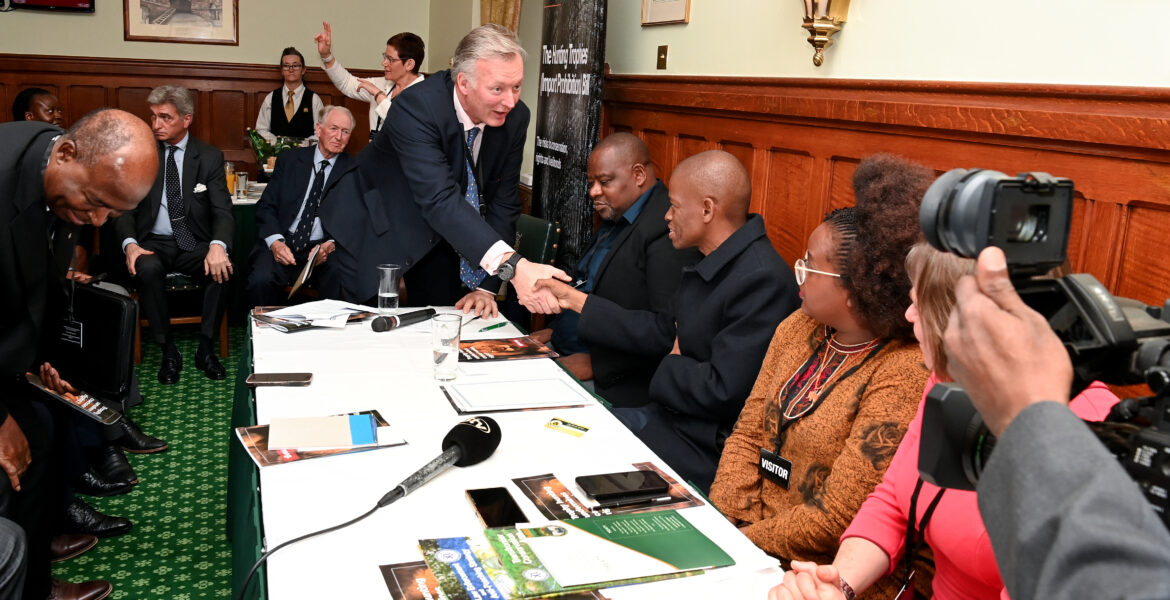There is much elephantine electioneering and hardly anything else in the loud clamour over the UK’s Hunting Trophies (Import Prohibition) Bill, writes our Special Correspondent DOUGLAS RASBASH
Yet again, we see political capital being made of the elephant issue, as was the case in 2019. There are calls of neo-colonialism and of interference in the affairs of Botswana by its former colonial power. The allegations need debunking.
First there is nothing called Trophy Hunting Ban – banning hunting is for Botswana to decide, not Britain or any other country. The proposed legislation that is subject to all this passion and political capital in an election year is called Hunting Trophies (Import Prohibition) Bill. It is trade issue similar to Botswana’s bans on importation of potatoes.
The UK has every right to ban imports of anything it does not want entering its domain. If Botswana wants to ban importation of electric cars, it can do so, it would be within its rights to do so.
It is not correct that the import ban on hunting trophies is targeting Botswana. It applies universally to all animals included in CITES, which stands for the Convention on International Trade in Endangered Species of Wild Fauna and Flora, which then president Seretse Khama signed for Botswana on 14 November 1977.
Its aim is to ensure that international trade in specimens of wild animals and plants does not threaten the survival of the species. Botswana has become the last refuge of elephants in Africa, therefore killing them is a crucial issue for CITES.
A mere 4%
Nor is the UK even interested in Botswana that accounts for a mere 4% of UK imports of hunting trophies (see analysis by CITES of UK imports). In 20 years, only 257 animal trophies were imported by the UK from Botswana – which amounts to an average of 10 per year.
Let us also bear in mind that the ban on ivory trading is almost universal. CITES secured an agreement in 1989 among its member states to ban the international trade in ivory. This disruption of the international ivory market was intended to reverse a sharp decline in the African elephant population, which had resulted from widespread poaching for ivory in the previous decade. The continent’s overall population of elephants increased after the ban.
Be aware too that China has long been one of the world’s biggest markets for ivory. But as of 2018, all trade in ivory and ivory products in the country is illegal. The move is being hailed as a major development in efforts to protect the world’s elephant population.
Similarly, on 2nd October 1991, trade in imported ivory and articles made therefrom were prohibited by the Indian parliament with effect from 2nd April 1992. The Indian parliament finally plugged the loophole. This piece of legislation was presented by the ivory traders. Furthermore, in a 2016 USA federal law, new ivory cannot be imported, exported or sold across state lines. Antique ivory can be sold with proper documentation proving that the item is an antique that is at least 100 years old. One cannot recollect any hue-and-cry from Botswana when these countries acted as they did.
Not animal-specific
But the hunting trophy import ban is not animal-specific. Polar bear trophies are very popular but you will not find them in Botswana. Incidentally, the UK is not alone in wanting to restrict such imports but is joining Brazil, India, Costa Rica, Australia, Kenya, Malawi and many other countries. When these countries banned importation of animal trophies, Botswana did not protest. Significantly, I have never seen the head of an elephant or of a buffalo staring at me from the walls of my friends’ houses in Botswana – because Batswana do not like such things. Or do we?
So let us cut the debate to the quick. This is an election year, the economy is struggling, unemployment is still high, social issues like rape remain acute, and election managers would love a distraction. This thing about banning hunting of trophies in Botswana is merely a political ploy to distract voters from the real issues that affect us all. And nothing is appreciated more by certain members of the electorate than a battle with our old colonial masters.
No discernible change
It is not about conservation, not even rural economies because there is no scientifically proven link with trophy hunting. Scientists remain undecided on this issue. The government has been rather coy about releasing data in animal conflict since the easing of hunting restrictions because there has been no discernible change.
The very well-prepared Botswana Elephant Management Plan and Action Plan 2021-2026 submitted by Botswana to CITES CoP19 Inf. 102. revised in 2022 remains to be decided upon. But there is no analysis to show that animal conflicts have declined or biodiversity has improved, both of which are claimed to be objectives of the EMPAP. It is not surprising because there is little zoological investigative or research capacity, there is no degree in zoology at any level and those that have related qualifications obtained them in universities in the USA or the UK.
Even more significantly, the amount of funding for zoological research is pitifully small. How can the government declare a special interest in animal conservation if appropriate academia is not supported?
Arguably, neo colonialism is what drives trophy hunting. Neo colonialists own or lease vast tracts of our land to indulge their egos behind rifles, crossbows or other weapons. They are shamelessly exploiting our national resources as they have always done. Hunting concessions are not the realm of Batswana but of foreigners. The UK Hunting Trophies (Importation) Bill can be seen to counter neo-colonial exploitation, not the opposite. So let us see this for what it is in an election year – elephantine electioneering.

